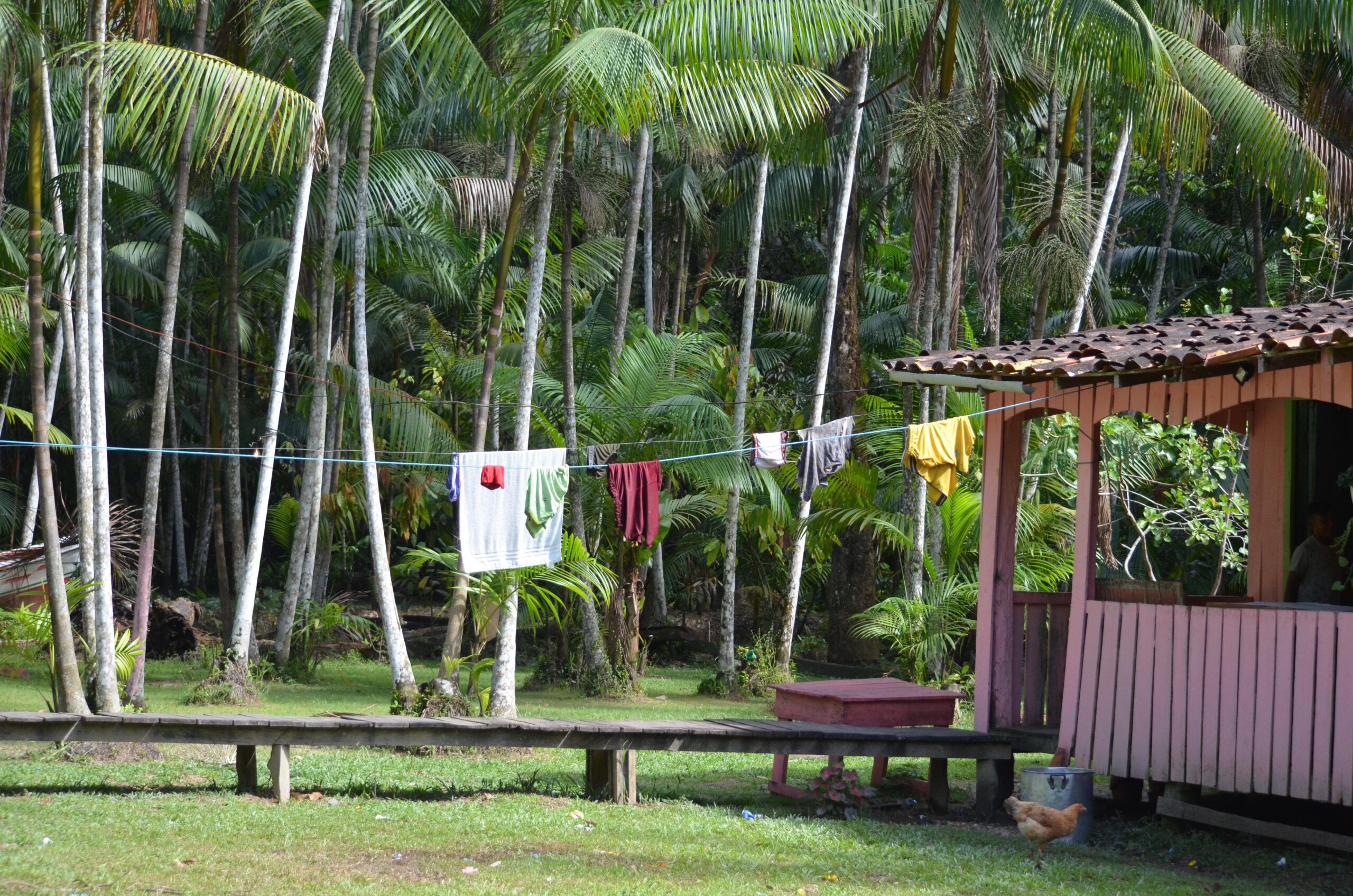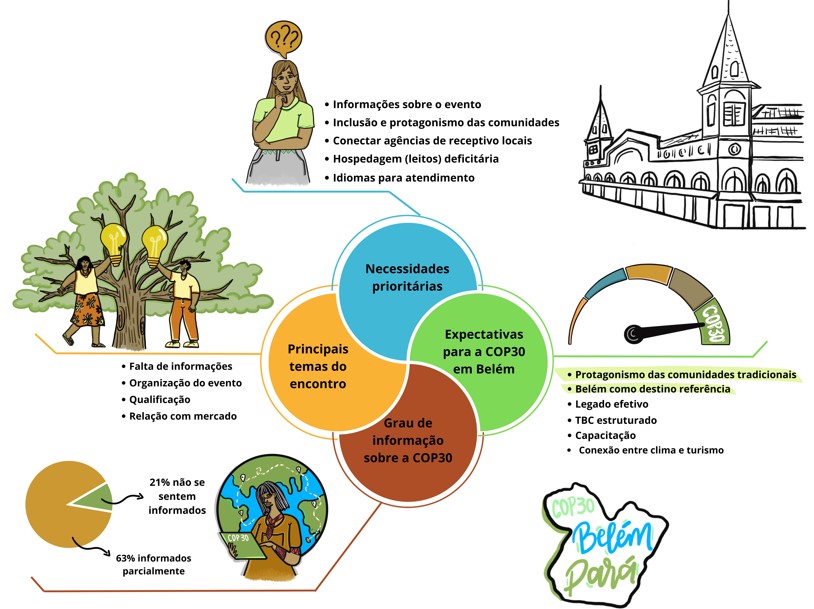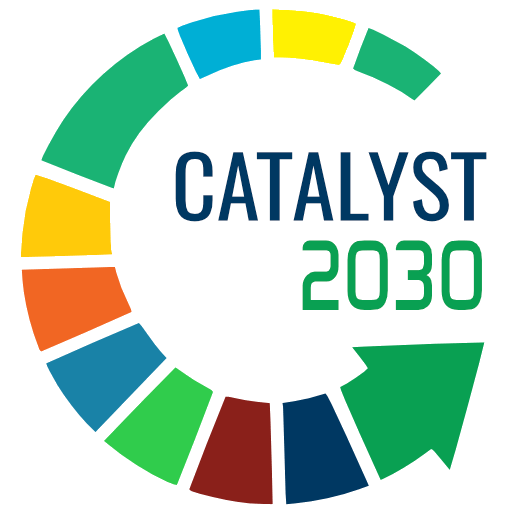
We hear a lot about logistical problems and structural issues in the city of Belém when it comes to holding the 30th Conference of the Parties to the United Nations Framework Convention on Climate Change (COP30) next year, and that’s no lie. There is, however, a part of the issue, but also the solution, that has been left unaddressed: the participation of the city’s traditional communities and residents.
In the listening session held on March 4 by Raízes Desenvolvimento Sustentável together with Diaspora.Black and Estação Gabiraba, we identified that the lack of information about the event is one of the biggest pains reported by the community. Of the people interviewed, 63% said they were partially informed about COP30, while 21% did not feel informed.
Through this meeting, we were also able to identify that the inclusion and protagonism of traditional communities is a priority need at the moment; as well as the urgent need for language training, as communication is an extremely important part of attracting international tourism. In addition, according to the reports of the people who took part in our meeting, the lodges are not prepared to receive the large influx that the event will bring. And neither are the local receptive agencies connected with these future tourists.
Expectations for COP30 in Belém
During our meeting, the population reported that one of the greatest expectations for the event is precisely the role of traditional communities. This protagonism, especially in the area of tourism, not only benefits these communities economically but also contributes to the preservation of culture, sustainable development, and environmental conservation. It also allows for cultural exchange between visitors and members of the local communities, promoting mutual understanding and respect for cultural diversity.
COP30 could once and for all make Belém one of Brazil’s top destinations, bringing a little attention to the north of Brazil and its enchanting riches. According to IBGE, Belém currently has a population of over 1.3 million people. The city stands out for its cultural richness and the variety of tourist attractions that play a significant role in the local economy.
Belém is also one of the entrances to the world’s largest rainforest, the Amazon, so there is no better place to talk about climate change and environmental preservation than the city.
According to a statement made by the President of the Republic, Luís Inácio Lula da Silva, during a visit to Belém to announce that the conference would be held in the capital, “It’s one thing to discuss the Amazon in Egypt; it’s another thing to discuss the Amazon in Berlin; it’s another thing to discuss the Amazon in Paris. Not now. Now we’re going to discuss the importance of the Amazon within the Amazon. We’re going to discuss the indigenous issue, seeing the indigenous people. We’re going to discuss the issue of the riverside peoples, by seeing the riverside peoples and seeing how they live”.
Strengthening project
The online discussion is part of the Project to Strengthen Community-Based Tourism in Belém, the islands and the surrounding area, organized by us and Diaspora Black.
The aim of this project is to ensure that the small entrepreneurs already established in the capitals are supported and become competitive to take on the tourist offer generated by the event. In addition, visitation to traditional communities will be improved and expanded, always within the precepts and with the care of Community-Based Tourism.
At this time, partners who develop tourism solutions that include local communities respectfully and sustainably are essential – and they are the ones we are looking for. If you or your company could be one of them, please get in touch. Belém has enormous potential to be a bio-economic capital, we just need support for this transformation.
Next steps
The lack of beds should be partially solved with new hotels or the refurbishment of existing ones, as well as solutions such as boats. However, the use of residents’ homes, beyond the Airbnb solution, could have a more inclusive design.
With training and communication, many people who were previously “excluded” from the possibility of generating income by providing services for the event will be able to be part of the solution. These are people involved in transportation, home accommodation, and food — which can be made to international standards and with the unique and incomparable taste of ingredients and spices from Pará.
Raízes, Diáspora and Estação Gabiraba are still looking for partners to implement solutions along these lines.
Will you join us?
Photo: Duda Said


